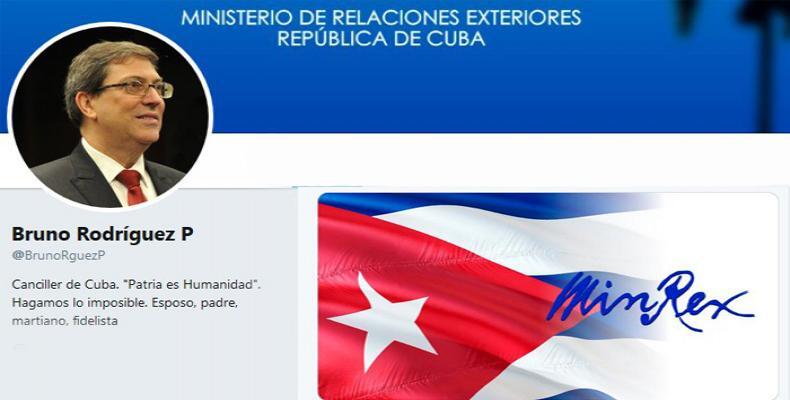
Havana, February 5 (RHC)-- Cuba's Foreign Minister Bruno Rodríguez recognized the strengths of his country's socialist system, which has made it possible to confront the blockade imposed by the United States more than 60 years ago.
On his Twitter account, the foreign minister stressed that only that resistance and unity managed to avoid the economic and social collapse that the hostile policy of the northern nation pursues against the island, achieve outstanding human development and ensure undisputed progress in social justice.
In the midst of Cuba's confrontation with the greatest health crisis of modern times, the COVID-19 pandemic, the blockade was reinforced by the U.S. administration of Joe Biden, who kept intact the 243 measures in force of his predecessor Donald Trump.
However, during that period, the Antillean nation developed its own vaccines against COVID-19, which allowed it to top the list of countries with the highest vaccination rate in the orb and was also the first to initiate immunization of its pediatric population.
The White House's siege violates international law and the principle of sovereign equality among States; and intends to reverse the political and social system that the Cuban population has decided for itself, in full exercise of its self-determination, a communiqué of the Cuban Association of the United Nations recently pointed out.
In his closing speech of the Eighth Ordinary Period of Sessions of the National Assembly of People's Power, corresponding to the IX Legislature, Cuban President Miguel Díaz-Canel also emphasized the courage and talent of the people.
"As Fidel once said, someday we will have to raise a monument to the people (...) It is up to us to complete that monument by jumping over the blockade, over our limitations, difficulties and brakes," he stressed.
Recently, it was 60 years since the signing of Executive Order 3447, which formalized Washington's blockade against Havana.
This is the longest unilateral siege in history, which generates shortages among the population and threatens basic human rights such as access to food and health, and significantly harms the most vulnerable sectors.

